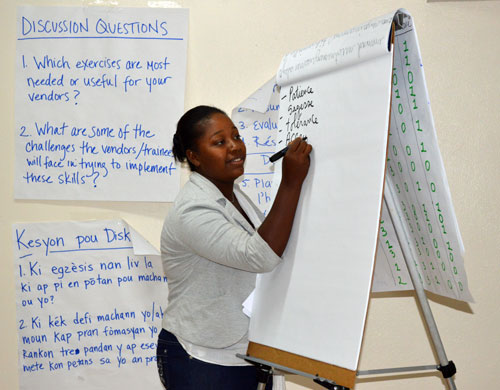Scaling Clean Cooking in Haiti Through Women’s Empowerment
During a recent visit to Haiti, Alliance gender and women’s empowerment specialists convened a 5-day workshop for partners working with women entrepreneurs in the household energy sector. This training with five Haitian clean cookstove and fuel partners was the first Alliance empowerment training held after the official release of our Empowered Entrepreneur Training Handbook. The goal of this workshop was to build the capacity of local implementers to enhance women’s participation in the clean cooking value chain through a training-of-trainers methodology. As part of the Alliance strategy to scale effective approaches that also increase gender impacts in the clean cooking sector, this Handbook is a tool for partners to scale adoption and social and economic impacts.
After attending this training of trainers, participants will facilitate their own trainings for women entrepreneurs in their value chains. During the workshop, the trainers developed a concrete plan of action for implementing the guidelines described in the Handbook..

The Alliance will use lessons learned from this training-of-trainers to continue to adapt and modify this model in order to ensure that partners have access to trainings to fully leverage the Handbook and training curriculum. As part of our plans to scale this training throughout the sector, we will hold webinars, conduct certifications, develop a training practicum, and monitoring tools for training. The goal of the monitoring and evaluation process is to create personal assessment tools to help facilitate the continuous growth and improvement of trainers and participants in the program.
Alliance partners who are interested in learning more about the Handbook training may contact Rachel Mahmud, Gender Associate, at rmahmud@cleancookstoves.org.
